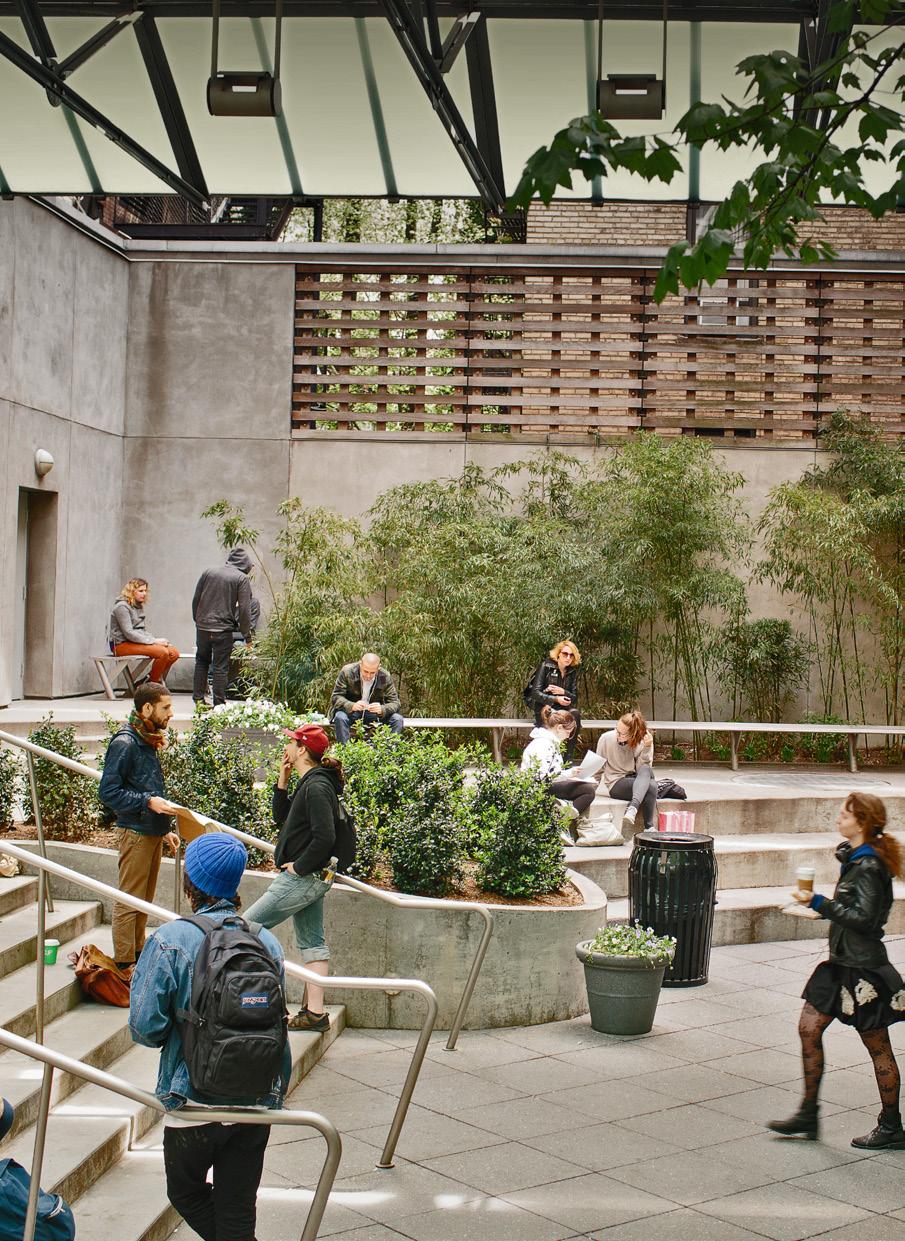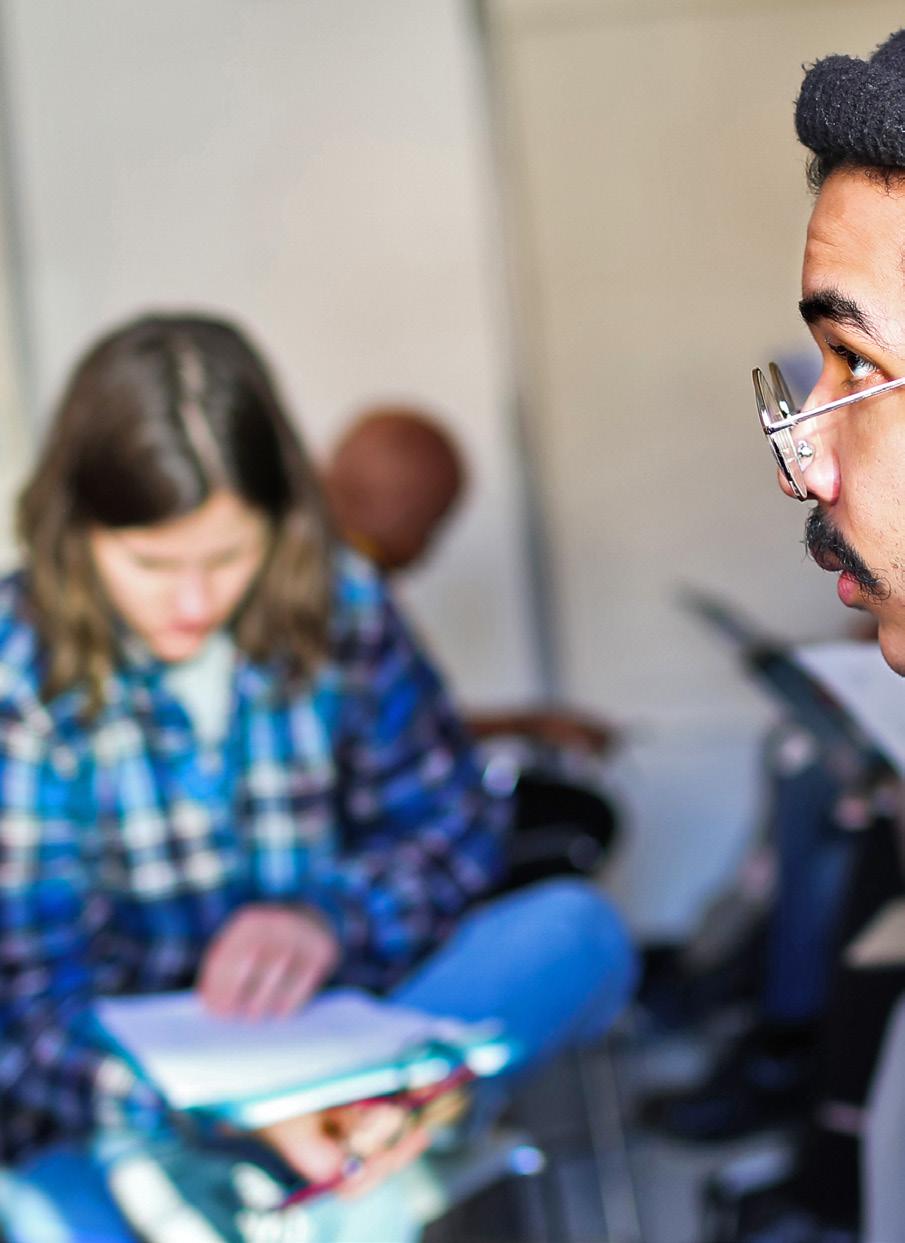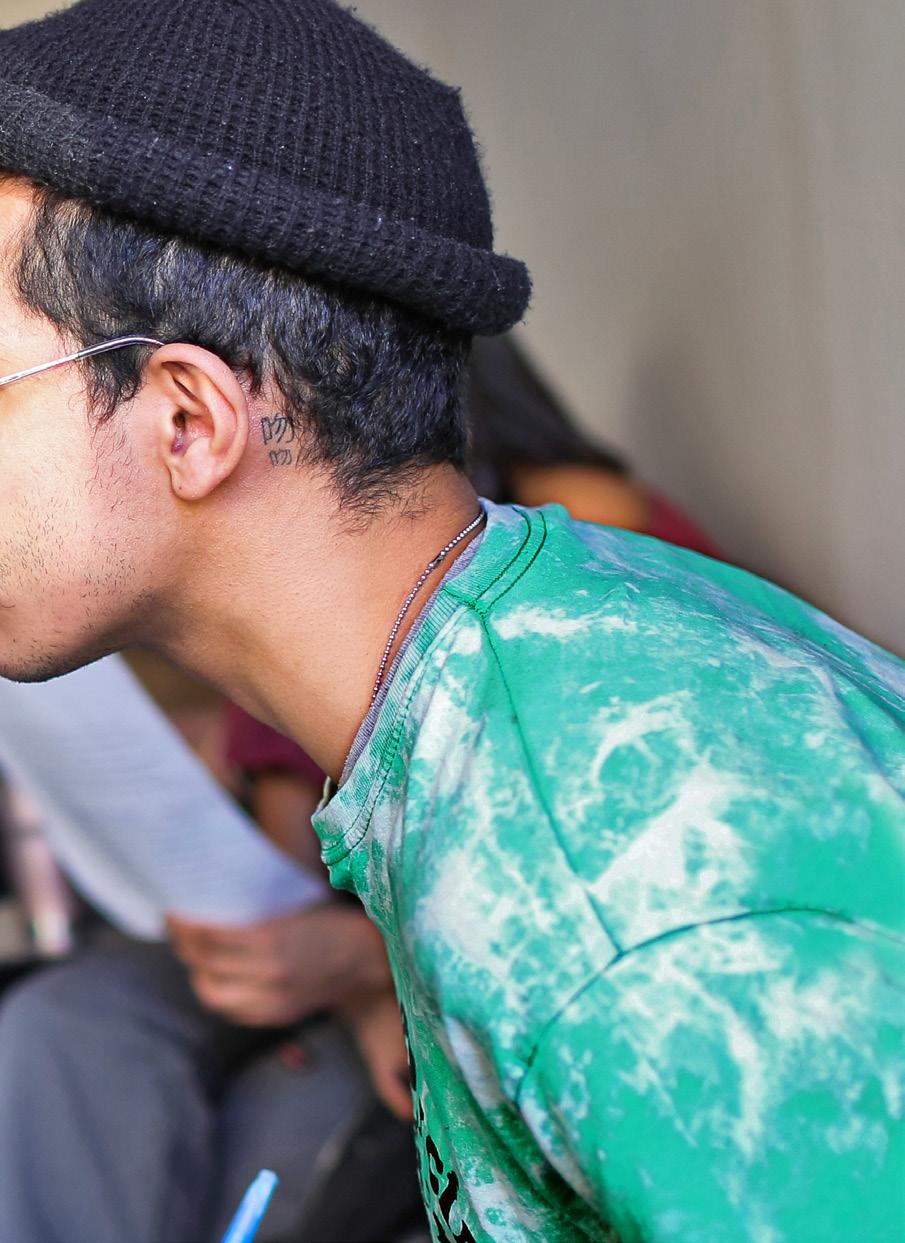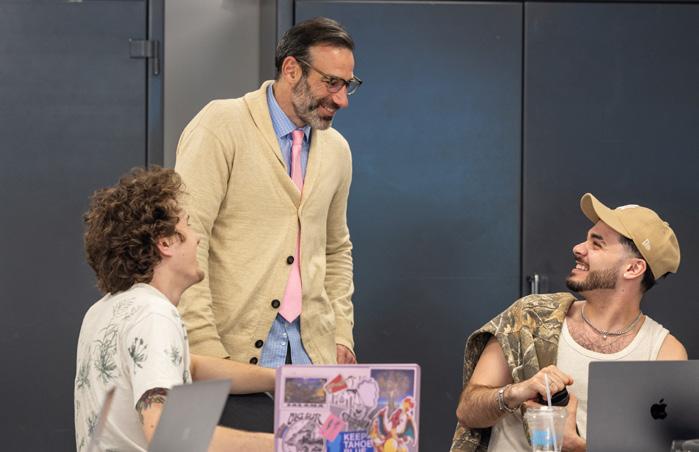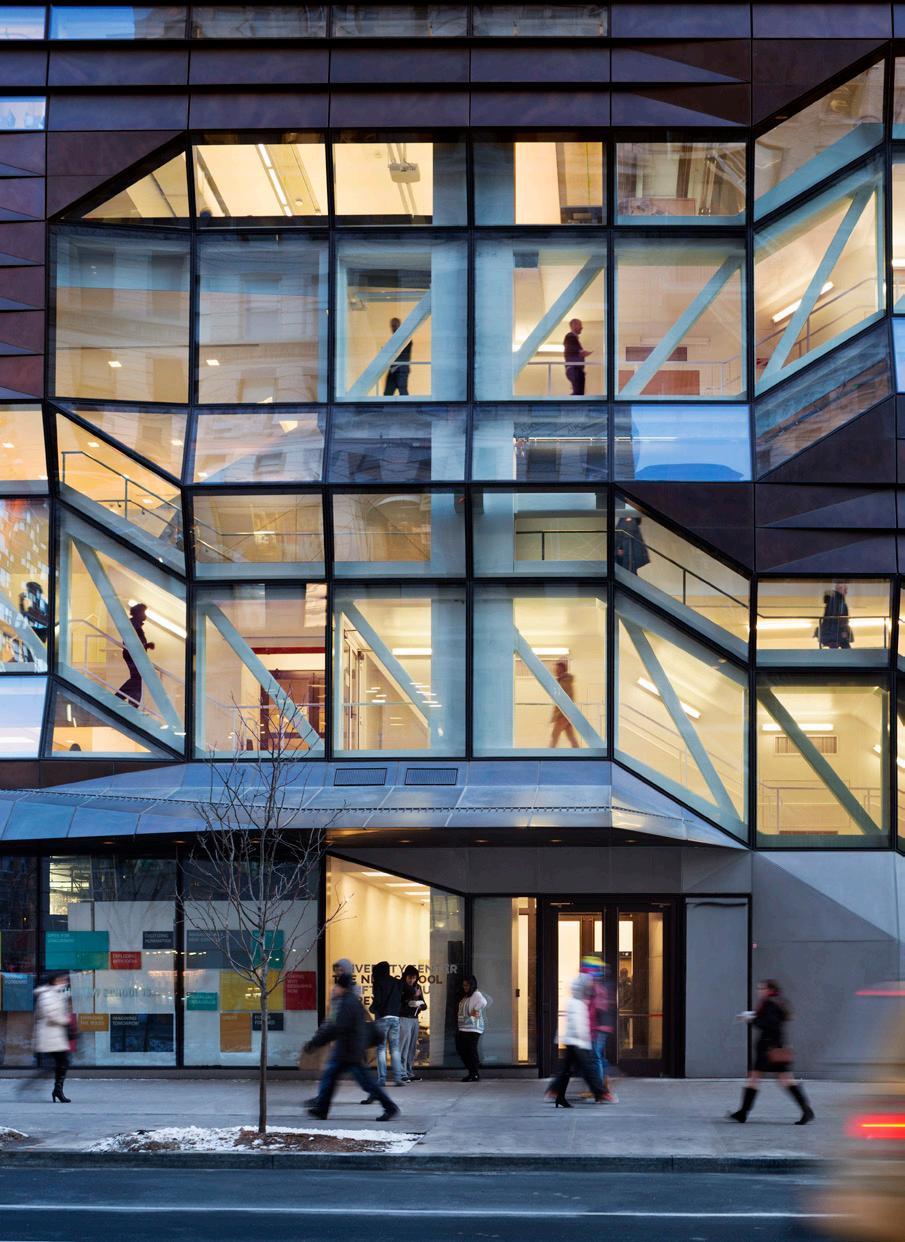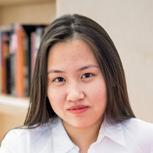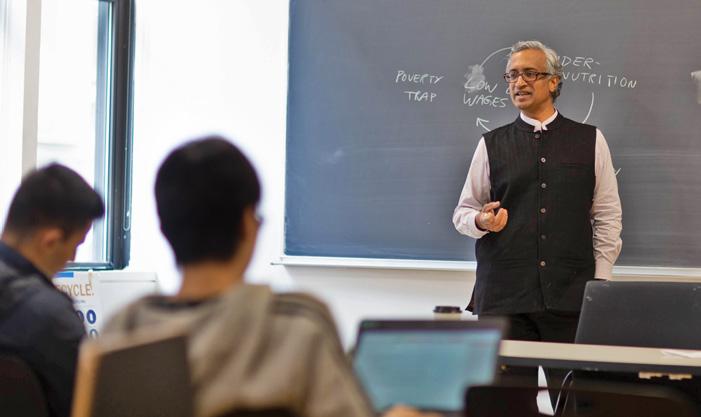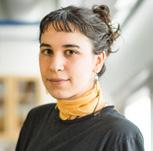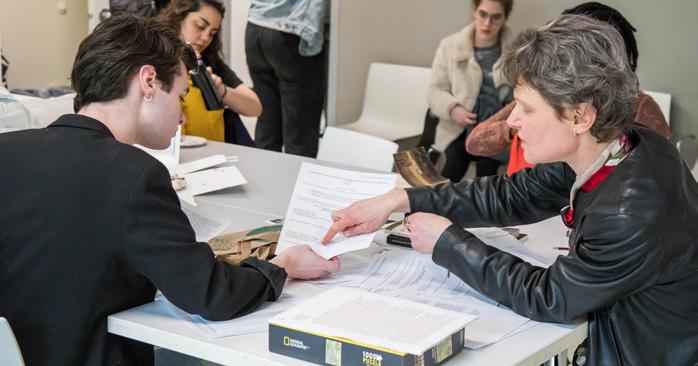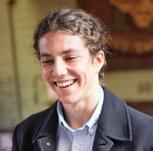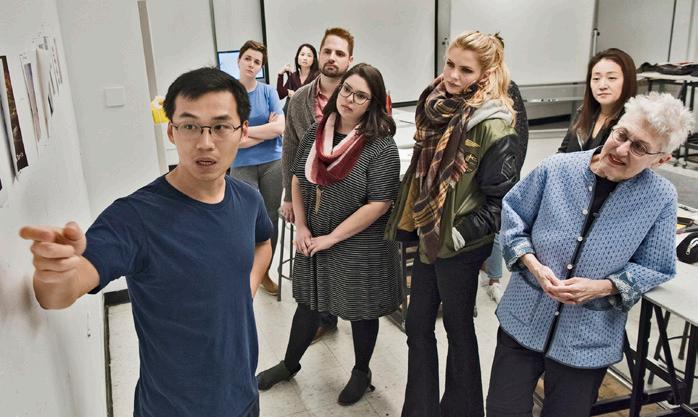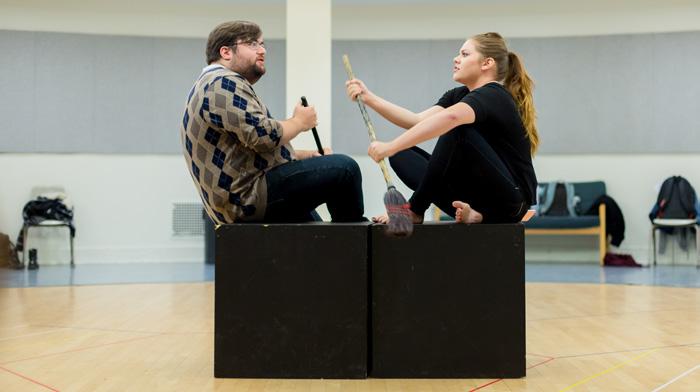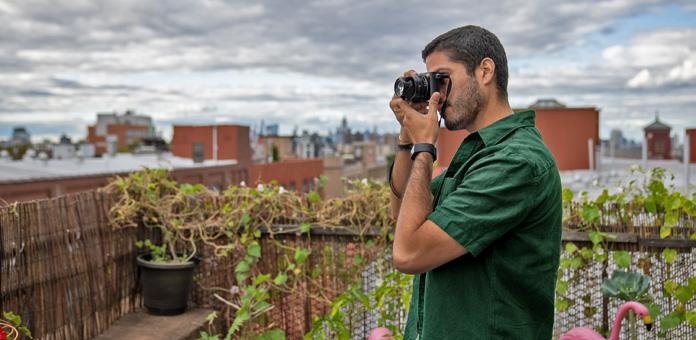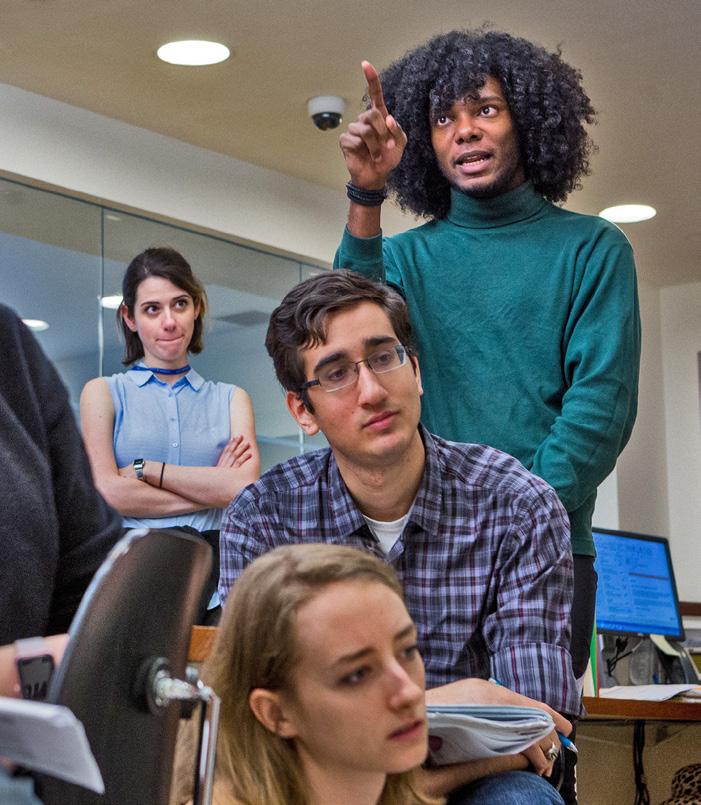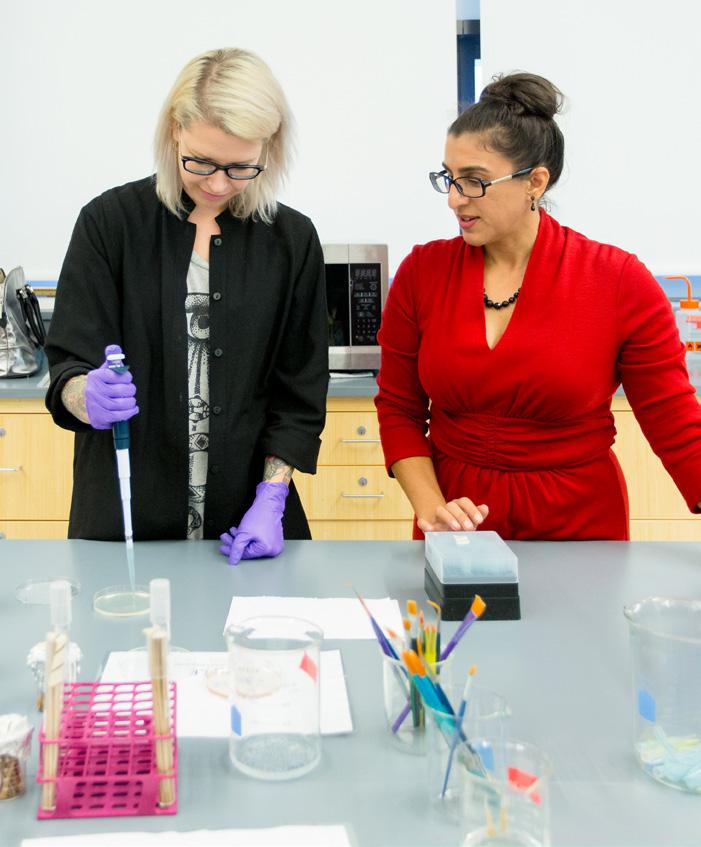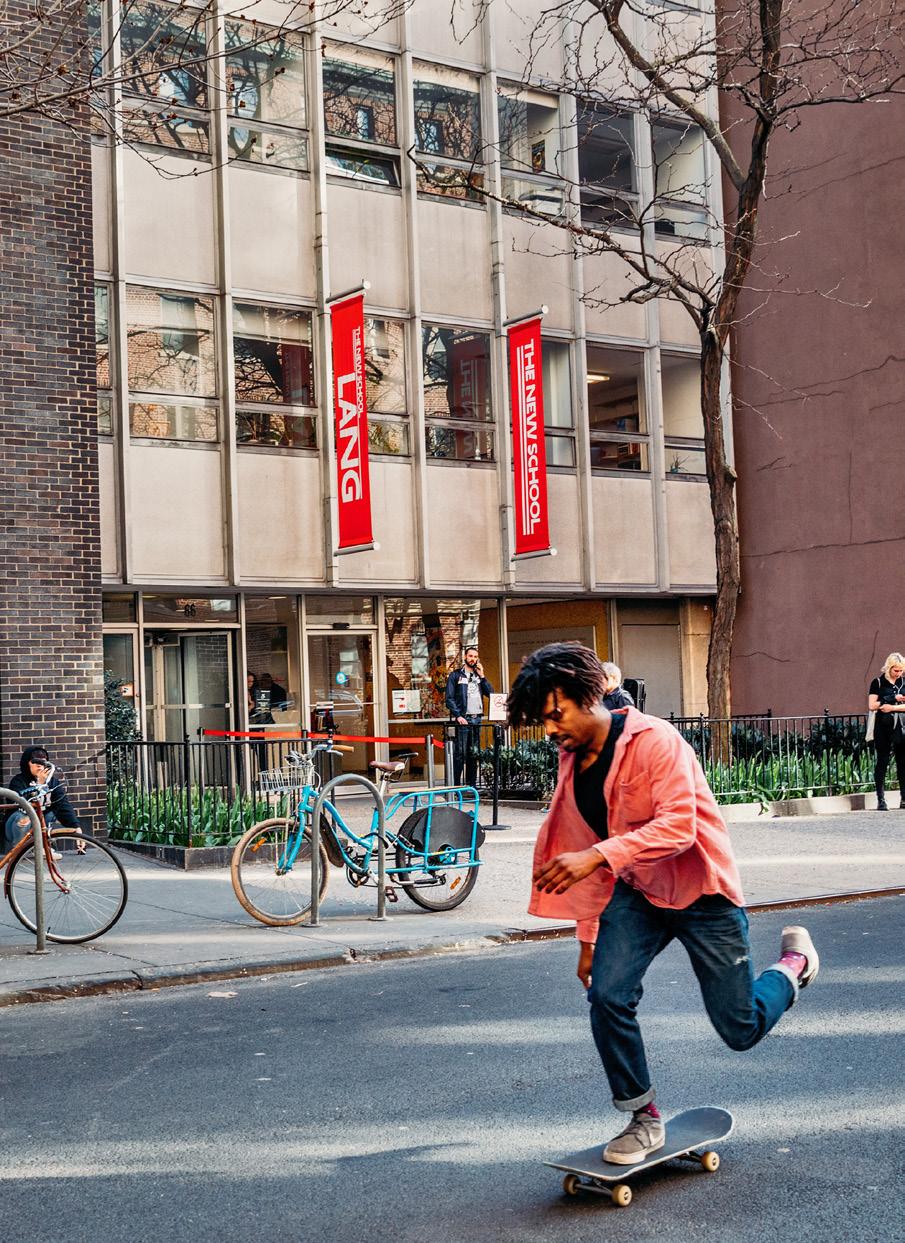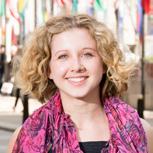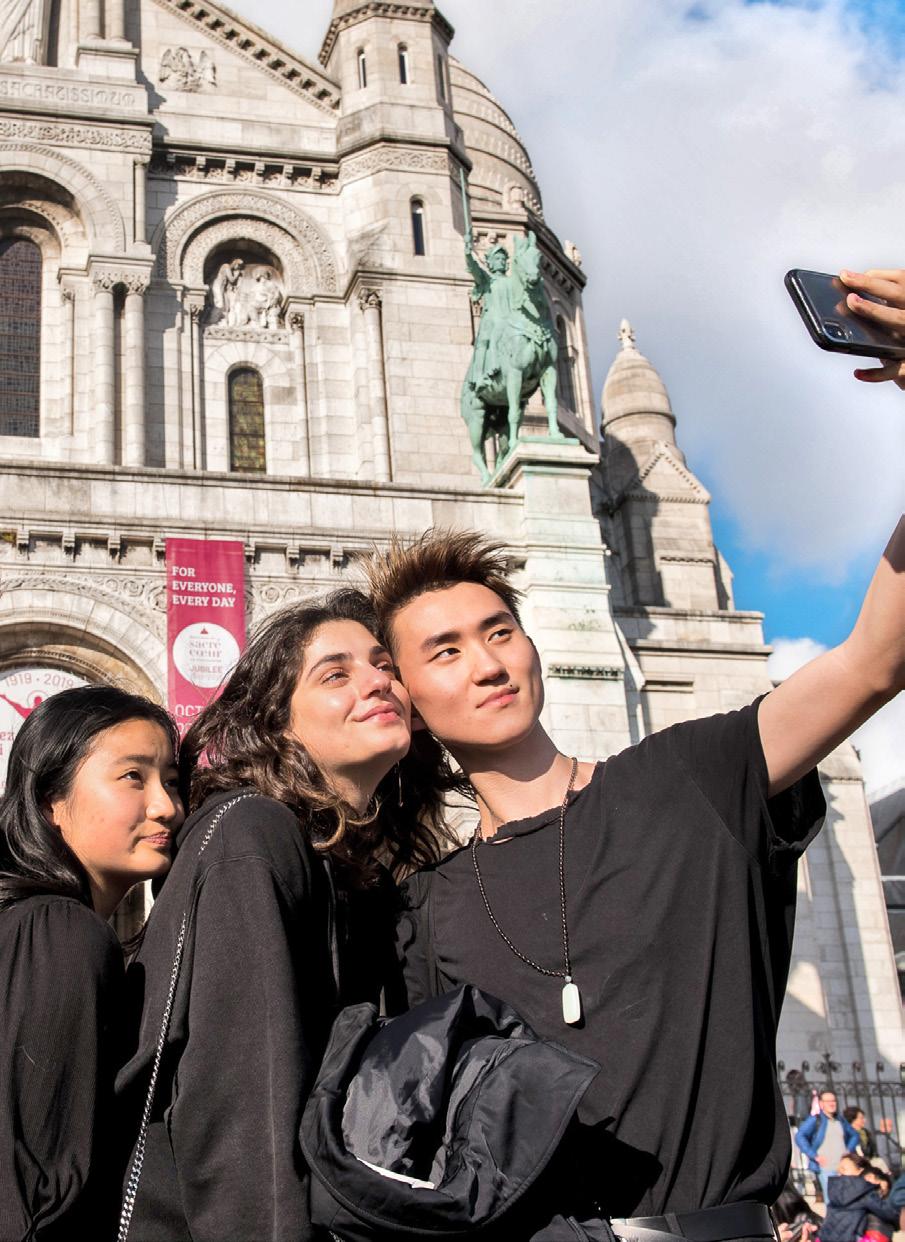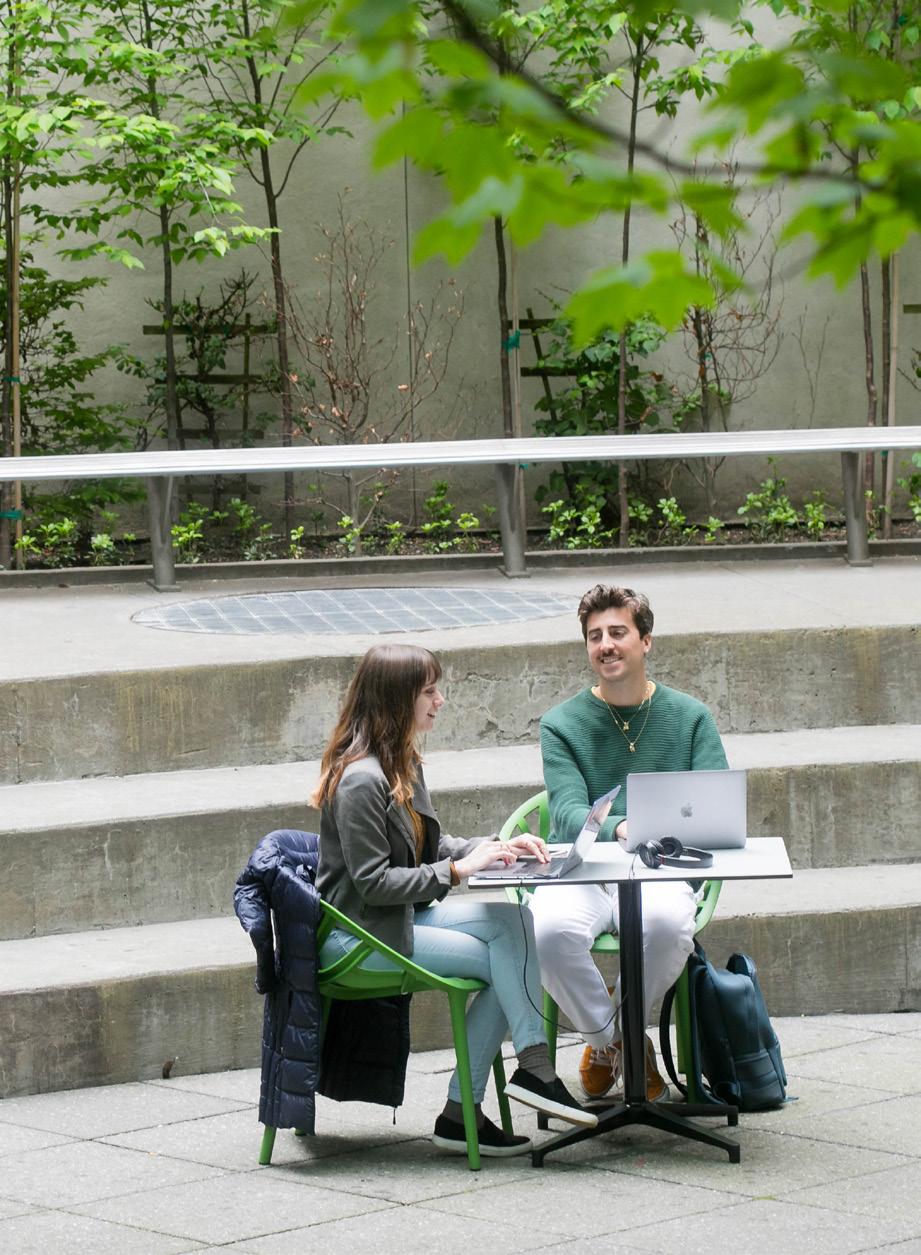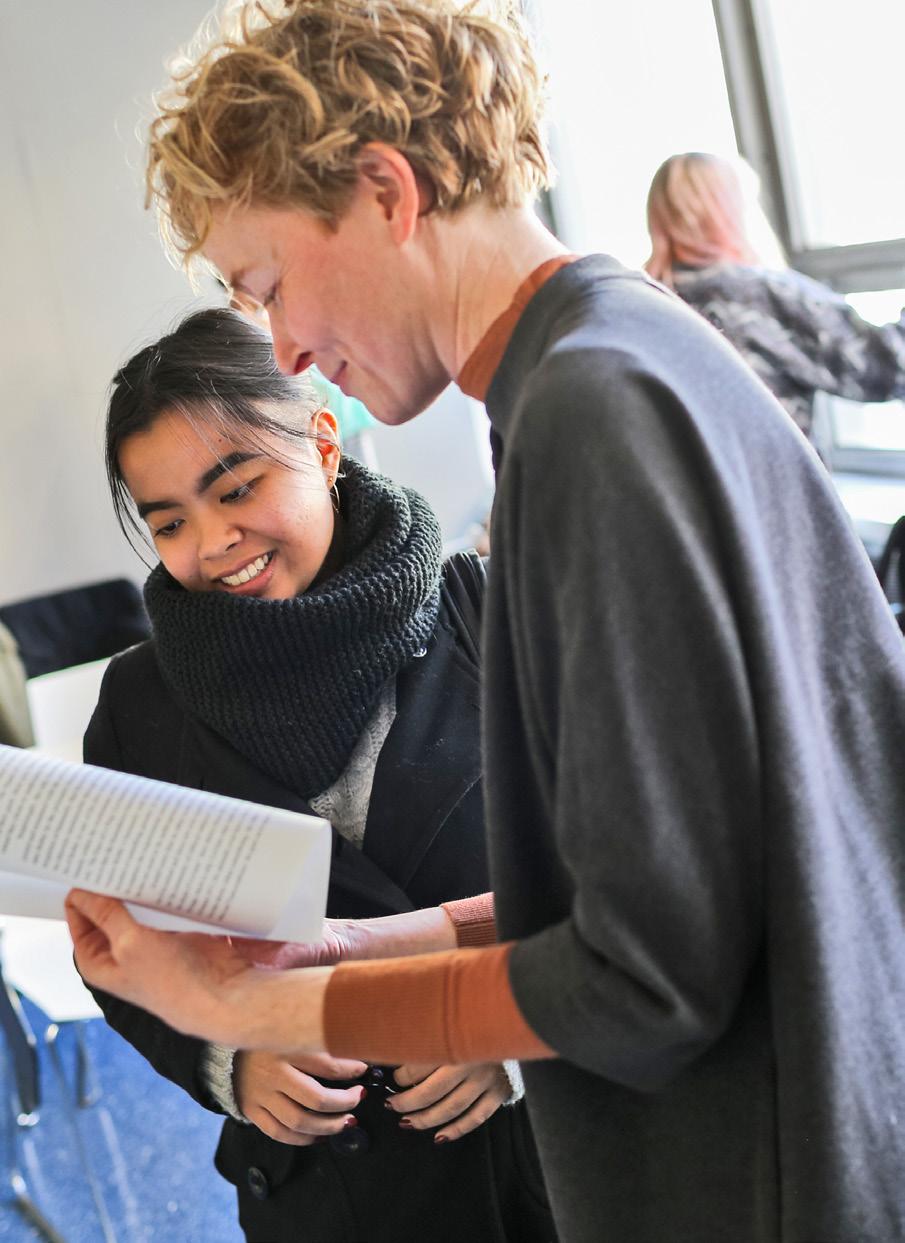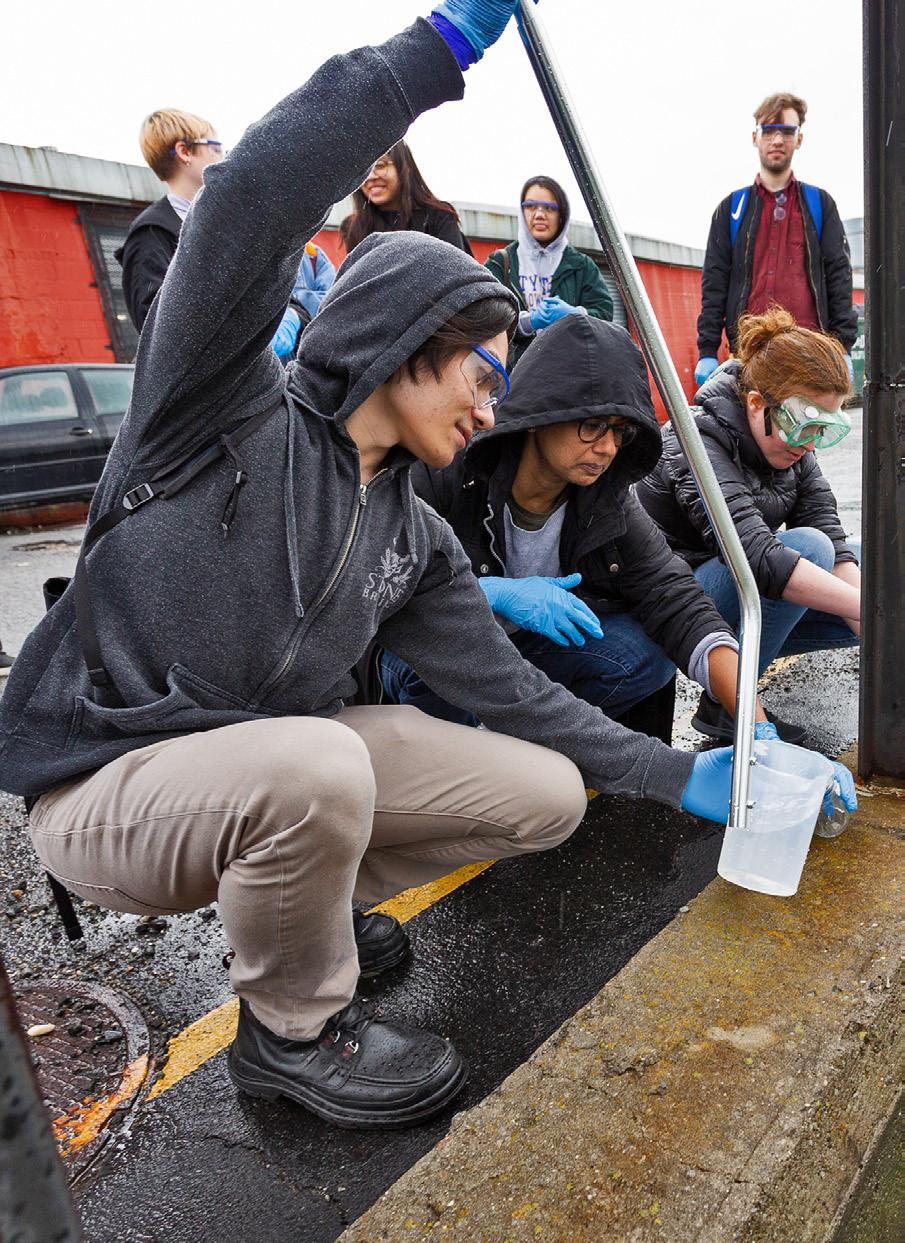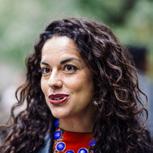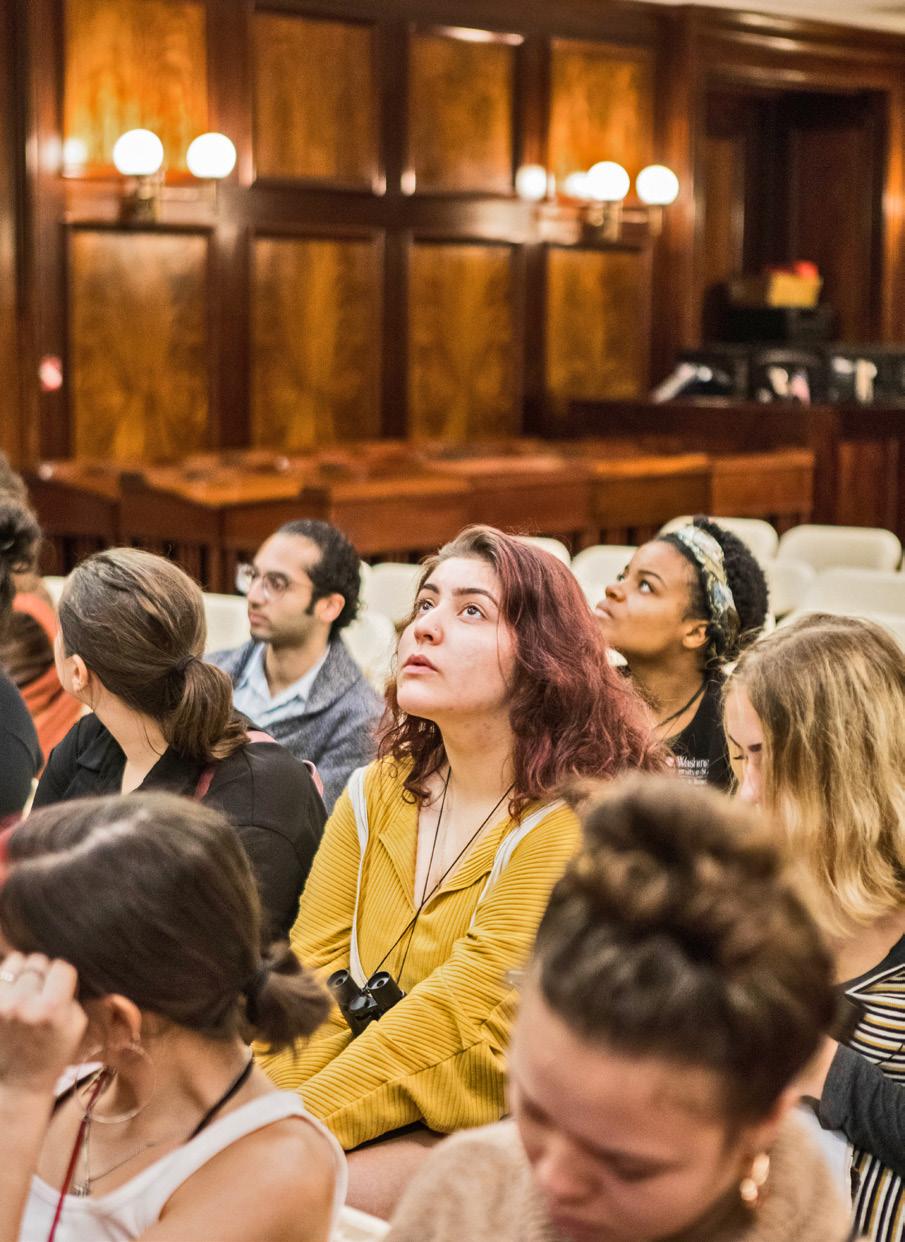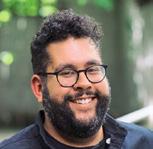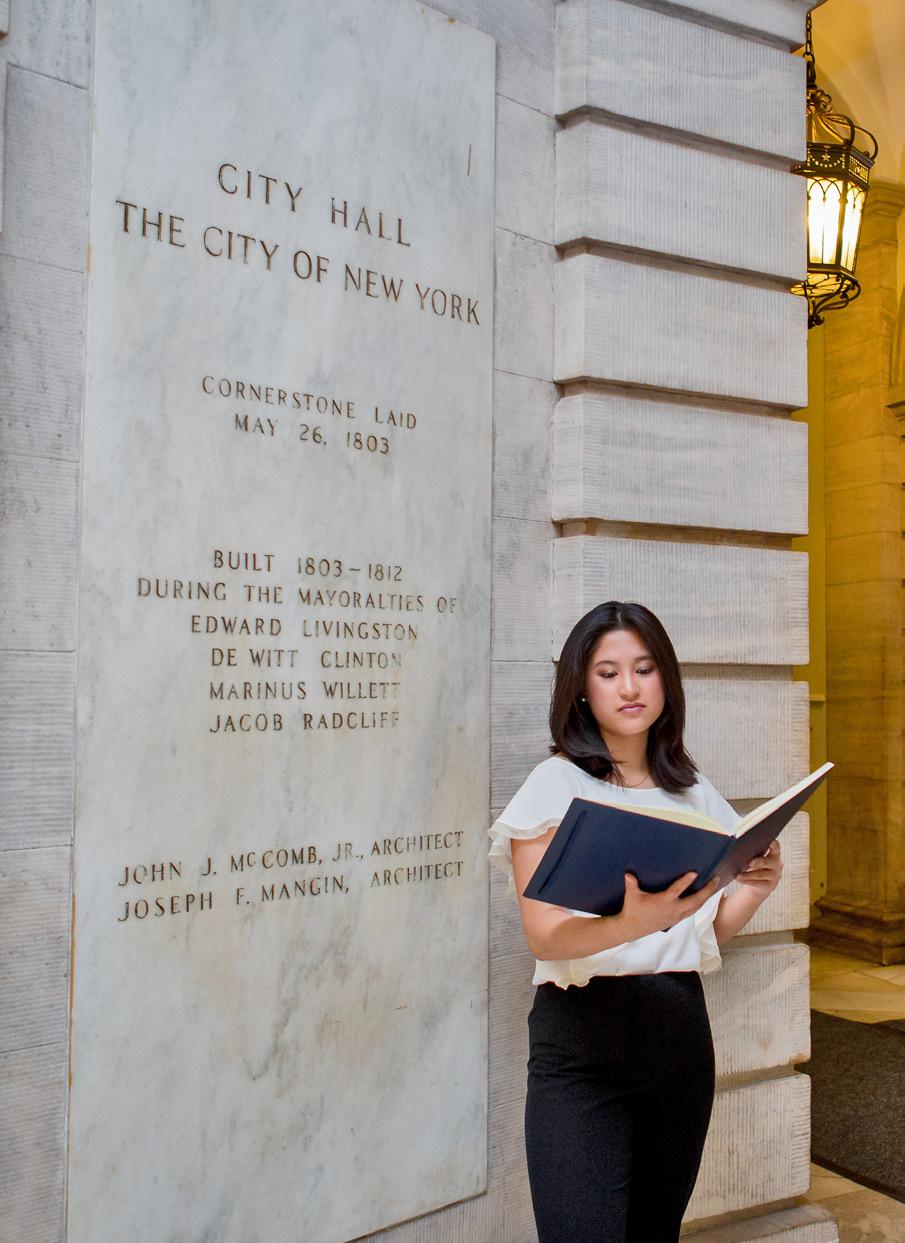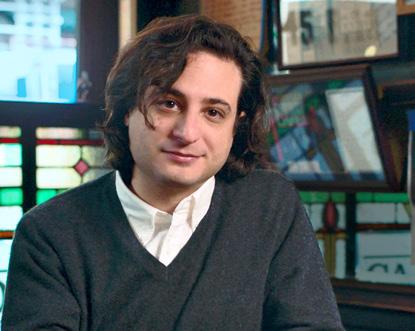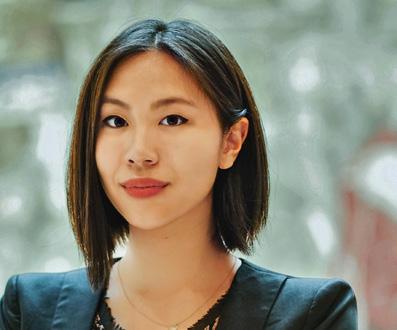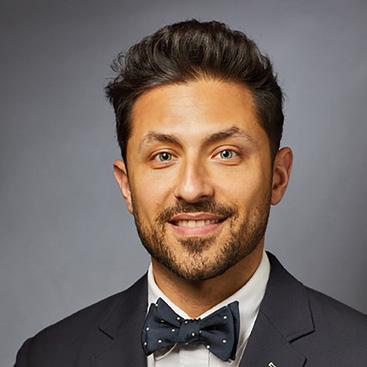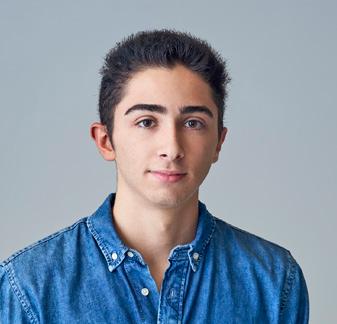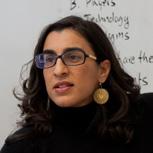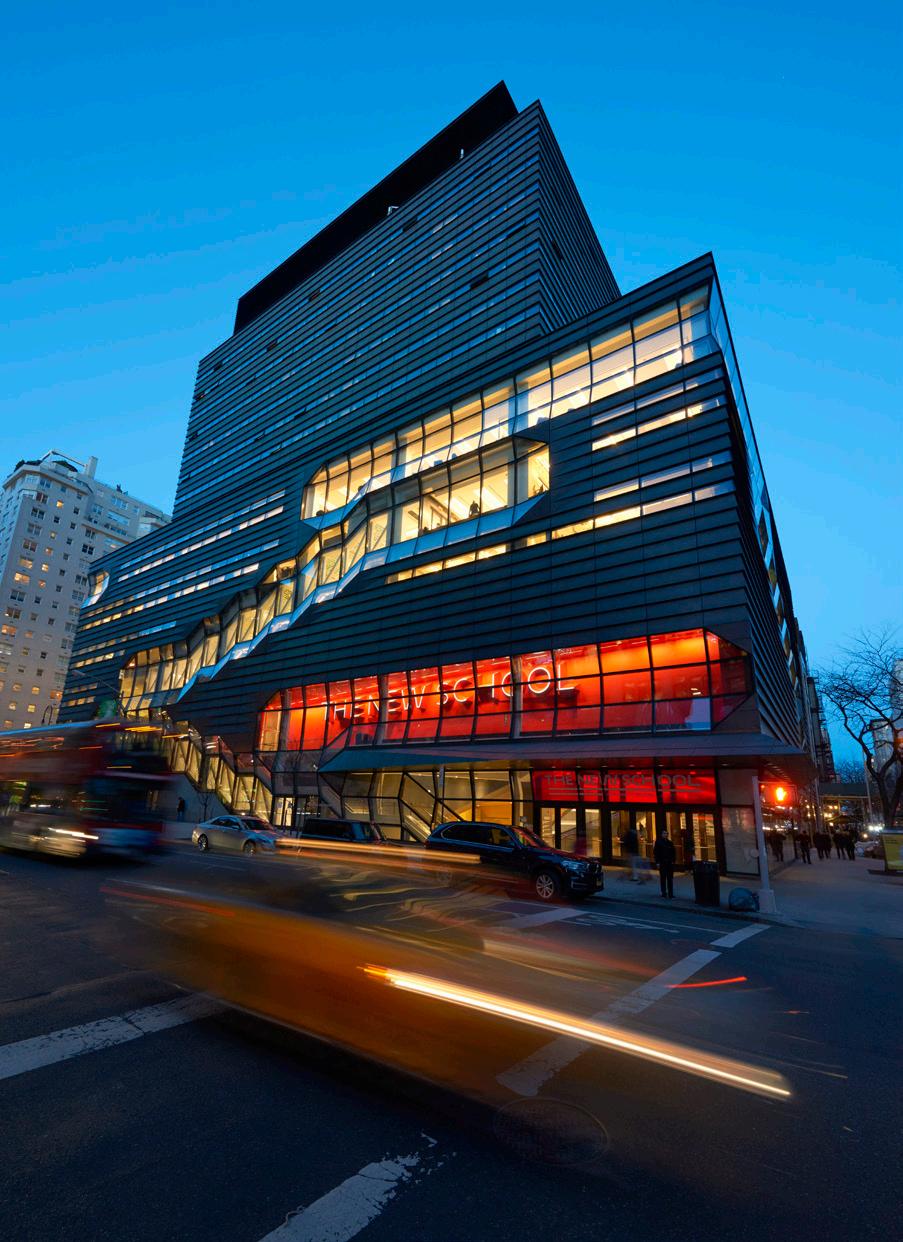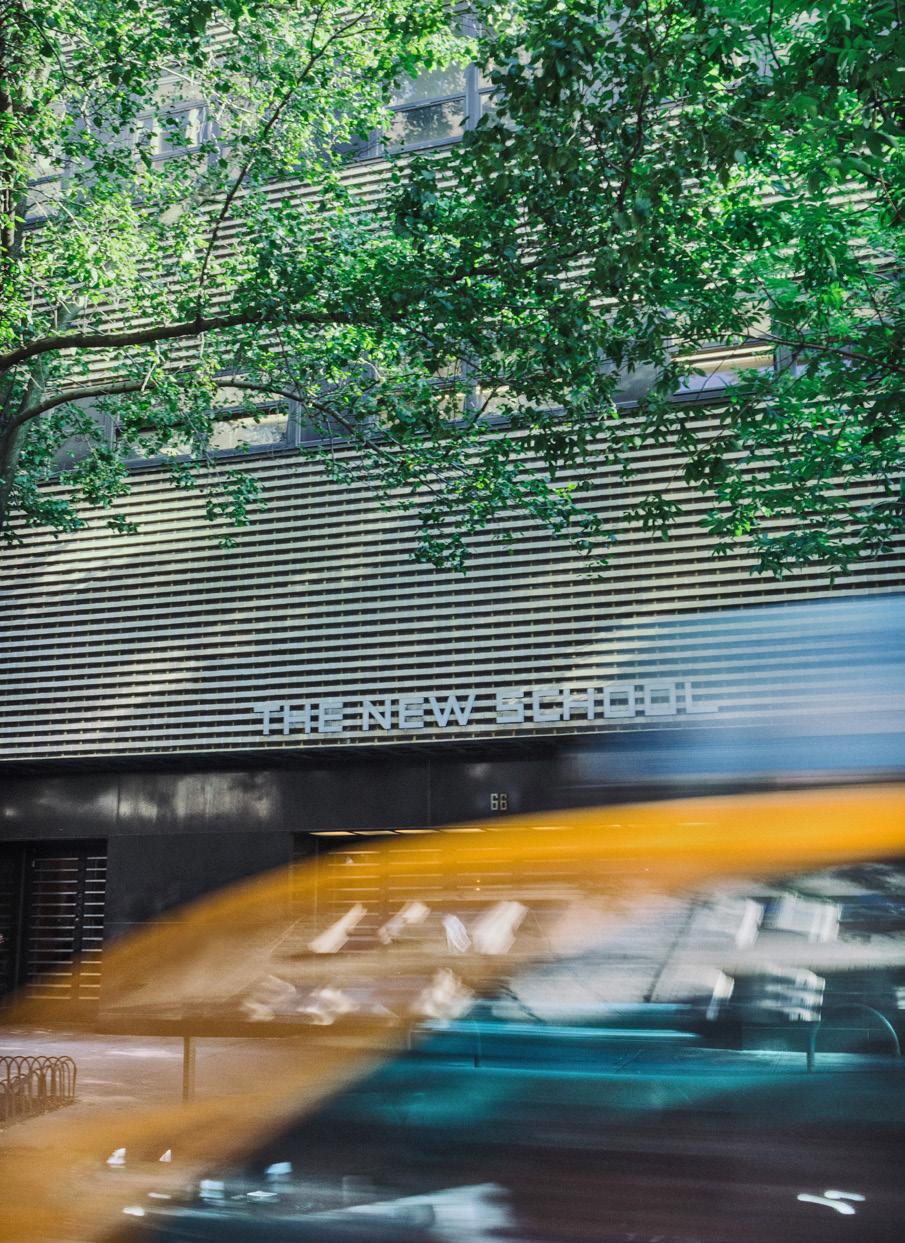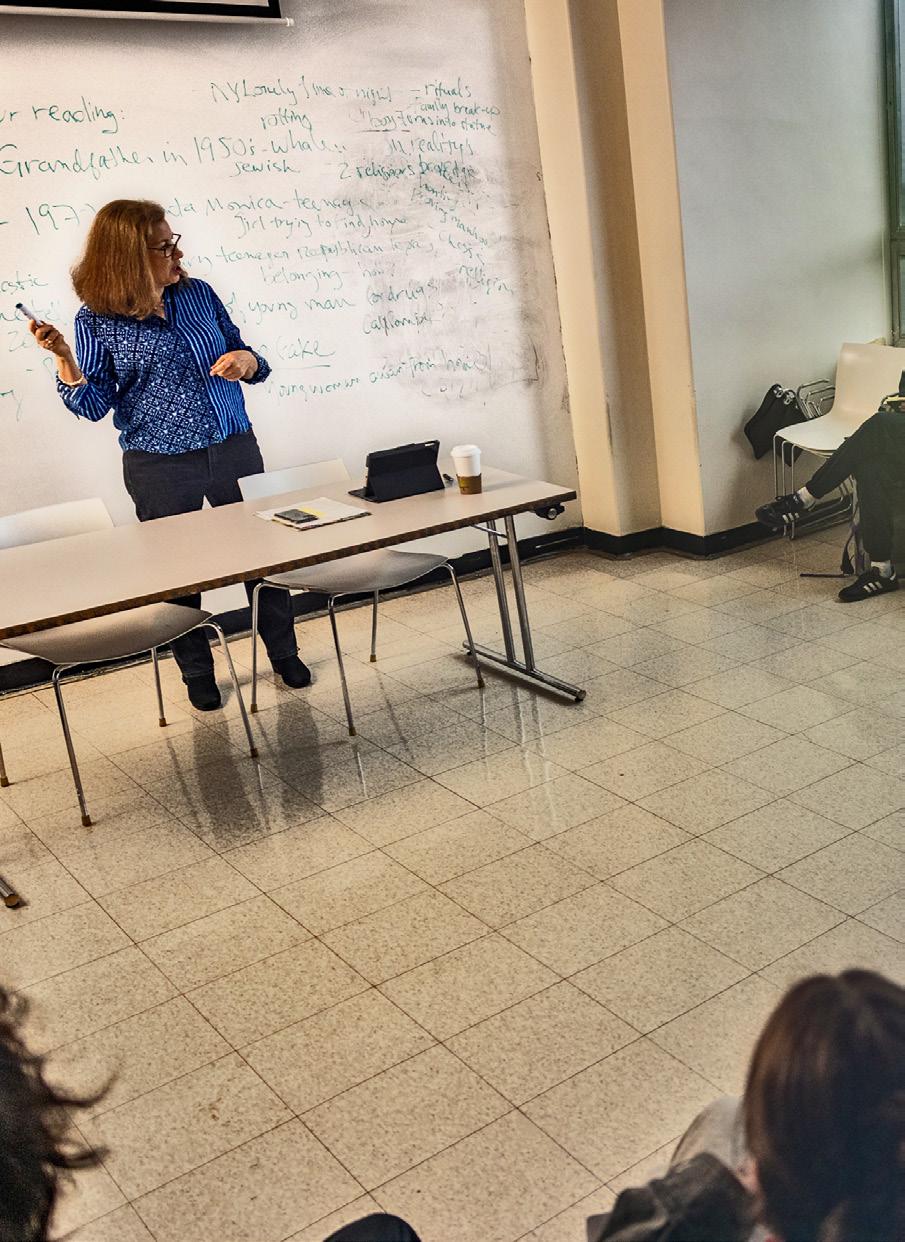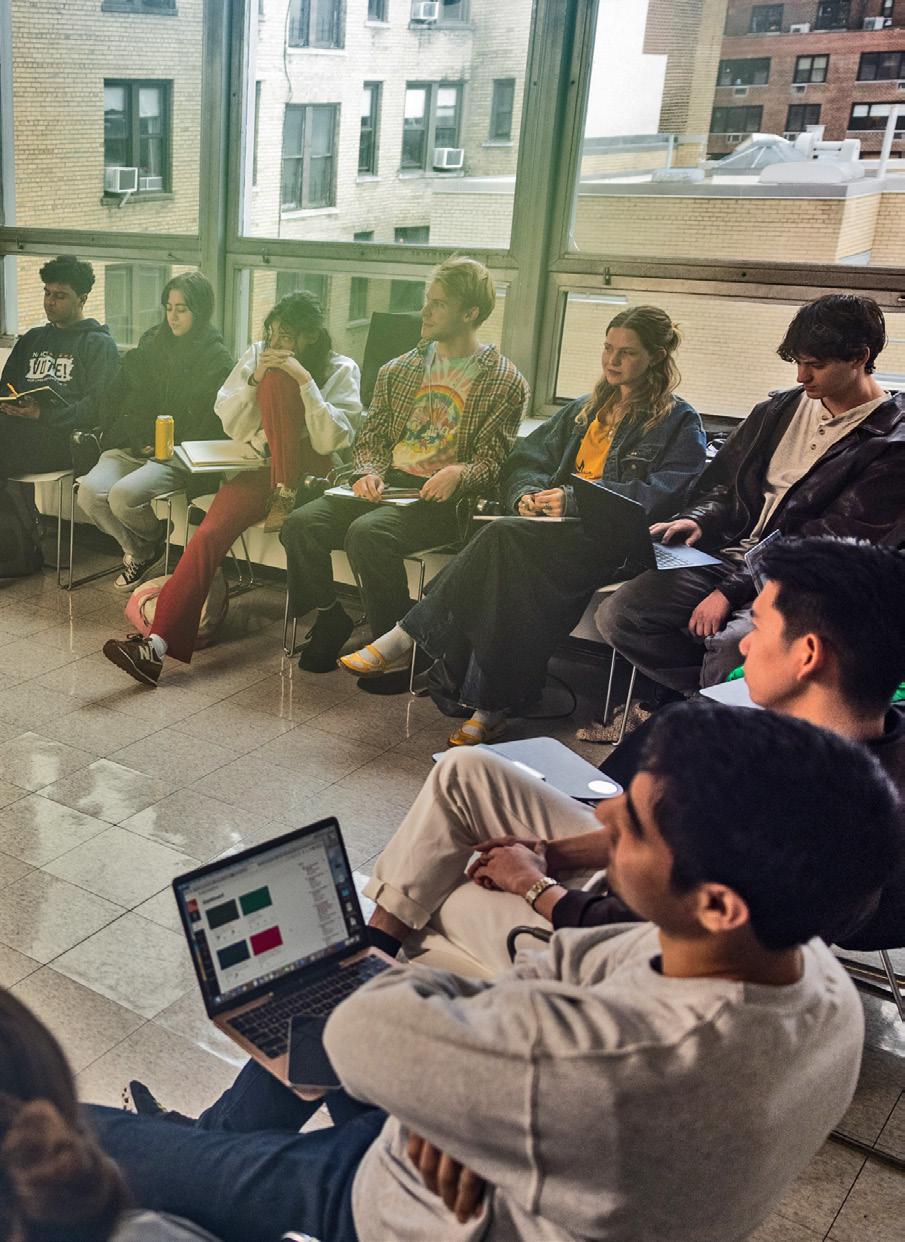ACADEMICS
A Path Paved for You—by You
At Lang, you’ll have the resources and academic freedom to chart a curriculum tailored to you. Select from a number of course options to fulfill the few requirements outside of your major: first-year writing seminars, an advising seminar/ workshop, and two university lecture courses. Choose from a broad array of liberal arts courses offered at Lang as well as classes taught at schools including Parsons School of Design, the Schools of Public Engagement, and The New School for Social Research.
Seminar-Style Courses
Imagine a liberal arts course that is less a lecture than a roundtable of creative intellectuals with bold, distinct voices as passionate as your own. Intimate and engaging, Lang seminars immerse you in an academic experience centered on pressing social issues, seminal texts, and spirited discourse.
Faculty Mentors
The faculty serve as mentors, creating a space where critical voices and diverse viewpoints are cultivated and challenged. Many Lang professors also teach in our university’s graduate programs, which means you are guided by leading public intellectuals who extend your learning by sharing cutting-edge research and insights—and their connections throughout NYC and beyond.
newschool.edu/lang/faculty
“At Lang, you engage directly with people who are doing the work you want to do in your future career. We help you put your learning into action.”
—Christoph Cox, Dean, Eugene Lang College of Liberal Arts
lily
BA Psychology (Lang), MA Psychology
(The New School for Social Research)
Lily is a bachelor’s-master’s student who, in just three and a half years, will have completed both undergraduate and graduate studies in psychology at the university—at Lang for her BA and at The New School for Social Research (NSSR) for her MA. She appreciates the fact that Lang and NSSR share faculty, which facilitates her studies. She also values Lang’s interdisciplinary approach and the opportunity to collaborate on projects with peers from diverse programs and partners. Contrasting the university with other schools, Lily says, “You’re not stuck in a small town—you’re in New York!”
All freshmen take first-year seminars to ease them into life in the city. During hers, Lily was matched with a student mentor who offered her guidance on essential skills such as managing her finances and navigating the city safely. “The first-year seminar gives students time to develop independence and accountability and find out what they’re passionate about,” she says, “but I think all of your time at Lang is about discovery.” Lily plans to apply her psychology skills and knowledge of the city by helping newcomers settle in New York City.
“I think all of your time at Lang is about discovery.”
eugene
Your academic and faculty advisors help you choose a course of study in any of our majors, including one you design yourself. You are not expected to declare a major until the second semester of your sophomore year, so you have the time and opportunity to explore a range of interests and subjects. You can also tailor your studies by pursuing a minor (see page 28) or enroll in a five-year dual degree (BA/BFA) or bachelor’smaster’s program to broaden your horizons (see page 32).
newschool.edu/lang/academics
Princeton Review: Lang appears on the review’s 2024 Best 389 Colleges and Best Regional Colleges lists
ANTHROPOLOGY
Major (BA), minor, BA-MA option
Apply a range of interdisciplinary approaches to the study of anthropology and explore key contemporary issues in depth. Gain fresh insight from courses that reflect the diverse interests of an international faculty.
Recent classes: Crip Anthropology: Ethnographies of Disability; Kinship and Relatedness; Multispecies Migrations and Planetary Health
Career paths: social and public services; international and non-governmental organization work; museum administration; marketing and market research; museum curation; anthropology and medical anthropology; social science professions; law; healthcare; business
eugene lang
THE ARTS
Major (BA), BA-MA option
Study the visual and performing arts in a liberal arts context. Connect academic inquiry and research to creative practice and use the arts as a powerful tool for self-discovery and advocacy. Choose one of two concentrations: Visual Studies or Arts in Context.
Recent classes: Arts in New York City; Recording Change; Exhibitions as History
Career paths: performance; visual arts; theater; dance; music; journalism; criticism; arts administration
CAPITALISM STUDIES
Minor
Investigate capitalism in its historical context and from the perspectives of economics, policy, ethics, culture, media, and the visual arts. Apply interdisciplinary approaches to the analysis of evolving socioeconomic phenomena, from postcolonial Africa to the politics of food systems, and examine the way capitalism informs political, technological, and creative activity in the modern world.
Recent classes: Ecological Economics; Science, Technology, Medicine, and Society; Contemporary Social Theory
CODE AS A LIBERAL ART
Minor
Develop skills in coding and computational thinking in the context of your liberal arts education, and use them as tools for critical and creative inquiry and for better understanding how computational systems affect different aspects of society. Explore algorithmic thinking and consider questions of access, equity, and social justice in relation to technological systems.
Recent classes: Internet Geographies; Python: Data, Science, and Design; Psychology of Aesthetics and Design
CONTEMPORARY DANCE
Major (BA), minor Combine practice and performance opportunities in New York City with a rigorous liberal arts education. Learn from some of the nation’s top choreographers, dancers, and scholars, and view dance in its social, cultural, and historical contexts while developing a sense of social responsibility.
Recent classes: Experiential Anatomy; Improvisation as Art and Physical Practice; Performance and Property Career paths: choreography; performance; arts administration; writing; graduate study
CONTEMPORARY MUSIC
Major (BA), minor
Examine the cultural and social significance of music in today’s world. Explore the diversity of contemporary music; music history, theory, and criticism; and the evolving technologies used in composing, performing, and listening. If you want both a liberal arts education and professional training in jazz and contemporary music, you can pursue the BA/BFA pathway.
Recent classes: DJ Skills and Styles; Documenting Popular Music/ians; Sound Sculpture as Instrument Career paths: music teaching; musical performance; business; media production; journalism and critical writing; arts administration
eugene
CULTURE AND MEDIA
Major (BA), minor, BA-MA option
Analyze media—print, film, radio, television, and the Internet—from the standpoints of history, politics, technology, sociology, textual analysis, and ethnography. Acquire the critical thinking and production skills you need to employ media in the process of world making.
Recent classes: Psychoanalysis and Culture; Planetary Science Fiction; Activating the Archive: Contemporary Practices in Historical Re-imagination
Career paths: media production; media art; journalism; arts administration; teaching; graduate study
ECONOMICS
Major (BA), minor, BA-MA option
Evaluate the history of economic ideas, contemporary markets and institutions, and global economic development along with the influence of class, gender, race, and ethnicity on economic outcomes. The curriculum emphasizes quantitative methods.
Recent classes: Economic History of Capitalism; The Evolution of Money: From Commodity to Crypto; Intermediate Macroeconomics
Career paths: public administration; business; advocacy; law; graduate study
BA Interdisciplinary Science, Writing minor (Lang)
When Marina first started at Lang, she had no interest in math or science. That changed, however, after her class with Katayoun Chamany of Lang’s Interdisciplinary Science program. “I fell in love with the idea of learning science in a contextualized way,” she says. “I went to public school, where science was mostly memorization. But this was actual critical thinking in science—something I had never experienced before.“
With the support of Lang’s Mohn Family Science and Social Justice Fellowship—established by one of Chamany’s former students—Marina embarked on a fully funded six-week field study in Argentina, where she investigated the effects of climate change on the ecosystem and local Indigenous communities. Her goal was to research an endangered tree species, but her “work ended up becoming a lot more about the Mapuche, an Indigenous group living in the region, and how they’re affected by the loss of the tree species. It was an incredible opportunity.”
“I went to public school, where science was mostly memorization. But this was actual critical thinking in science—something I had never experienced before.”
Marina
eugene lang college of liberal arts
ENVIRONMENTAL STUDIES
Major (BA), minor, BA-MA option, STEMdesignated
Confront the critical environmental issues facing the world’s cities in the 21st century. Bringing together the natural sciences, the social sciences, and design, this curriculum prepares students for policy planning and service careers in the public, private, and nonprofit sectors.
Recent classes: Plastic: The Story of a Material; Zero Food Waste; Energy and Sustainability
Career paths: sustainability consulting; public policy; urban design; urban planning; graduate study
GENDER STUDIES
Minor
Question the culturally constructed idea of sex difference and the way gender and sexuality are renegotiated over time. Research the history of feminist thought and action; men’s studies; gay, lesbian, bisexual, and transgender studies; and queer theory.
Recent classes: Ecofeminism and Global Justice; Queering and Decolonizing Theology; Gender and Its Discontents
GLOBAL STUDIES
Major (BA), minor, BA-MA option
Delve into the challenges of globalization, with a view to developing equitable outcomes through research, foreign language study, internships, and fieldwork.
Recent classes: International Law and Violence; Global Engagement Colloquium; Global Black Markets
Career paths: international affairs; foreign policy; human rights; advocacy; government and nonprofit administration; teaching; foreign language instruction; graduate study
HISTORY
Major (BA), minor, BA-MA option
Understand contemporary events by researching the past. Benefit from the partnership between Lang and The New School for Social Research, whose graduate faculty are renowned for their multidisciplinary approach to social theory. Develop critical thinking, research, and writing skills and engage with New York City’s scholarly institutions and museums.
Recent classes: Science, Technology, Medicine, and Society; A Queer American Past: Topics in LGBT History; Utopian Imagination
Career paths: teaching; nonprofit management; government and international relations; labor organizing; law; communications; publishing; new media production; humanities and social science professions
INTERDISCIPLINARY SCIENCE
Major (BA), minor, STEMdesignated
Investigate the dynamic interplay between health and environmental change by integrating laboratory work, scientific thinking, and quantitative reasoning with critical perspectives from the social sciences, humanities, and arts. Learn to use a planetary health framework to address climate change, the development and use of emerging biotechnologies, and the acquisition, management, and interpretation of large sets of data—real-world challenges that benefit from scientific innovation that is sustainable and socially just.
Recent classes: Stem Cells and Social Justice; Making Math and Art; Urban Environmental Health
Career paths: public health and advocacy; science communication and journalism; narrative medicine; STEM education; environmental activism; sustainability; design; policy; graduate study
JEWISH CULTURE
Minor Study Jewish art, history, and literature and consider Jews and Judaism as rich case studies through which to explore the meaning and origin of concepts like nation, state, religion, ethnicity, exile, and diaspora.
Recent classes: The Literature of Forgiveness; The Birth of Judaism and Christianity in the Ancient World; Oral Histories of Klezmer Musicians
JOURNALISM + DESIGN
Major (BA), minor, BA-MA option
Combine the rigorous critical thinking fostered by Eugene Lang College of Liberal Arts with the creative design thinking nurtured at Parsons School of Design. Acquire the skills needed to address the complex media ecosystem of the 21st century, and develop the creative capacity and confidence to thrive in any field that values imagination, agility, and know-how.
Recent classes: Have It Your Way: The Art of the Critical Review; Documentary Photojournalism; Journalism and the Machine
Career paths: entry-level digital journalism; writing; advanced study of journalism, design, or media
LAW AND SOCIAL CHANGE
Minor
Learn how law can be employed as an instrument of social change. Look at how law and legal institutions exert power and control, how the law produces systemic forms of harm, and how law can serve as a means of democratic transformation.
Recent classes: Performance and Property; International Law in the Age of Terror; Human Rights of Migrants
LIBERAL ARTS
Major (BA, BS),
BA-MA option
Work closely with a faculty advisor to design your own course of study. Select courses offered at The New School on a broad range of subjects and bring together themes and methods in areas that interest you.
Recent classes: Digital Feminisms; Textiles and Textures: Signs and Designs; The Future Will Be Cooperative: Co-ops, Community, Land Trusts, and the Commons
Career paths: writing; media; teaching; advocacy; public policy; entrepreneurship; arts administration; social science professions; graduate study
LITERARY STUDIES
Major (BA),
BA-MA option
View the written word from both critical and creative perspectives as you develop skills beyond effective writing, such as research and analysis, with opportunities to collaborate. All students take four core courses, which provide a common language and academic experience, then move on to a concentration in either Literature and Critical Analysis or Writing.
Recent classes: Writing the Body; Handmade Poetics: Notebooks, Diaries, and Other Paper Works; Politics and Memory in Irish Literature
Career paths: writing; bookselling; journalism; publishing; nonprofit communications; graduate study
BA Anthropology (Lang), BFA Jazz and Contemporary Music (College of Performing Arts)
Julian is a BA/BFA student combining studies in anthropology and jazz guitar. A recipient of the Lang Opportunity Award, he conducted ethnomusicological research in Ghana that enabled him to explore the connection between music and other social phenomena in that country. He was drawn to The New School and Lang by the distinctive interdisciplinary learning approaches employed by the faculty. “Jazz, anthropology, and the liberal arts end up informing one another,” he says. Julian explains that his project, “The Work of Art in the Age of Digital Reproduction in Ghana,” represents an exciting intersection of his academic interests. During his month-long research in Ghana, Julian collaborated with Akwaabal, a local record label striving to expand artists’ revenue streams, global presence, and professional freedom.
“ The way Lang and The New School allow for interdisciplinary work never ceases to amaze me.”
LITERATURE AND CRITICAL ANALYSIS
Concentration (BA Literary Studies), minor
Study literary texts from a range of periods, places, and cultures to develop your critical reading, writing, and analytical skills. You receive guidance from faculty members who bring scholarly expertise and aesthetic insight to both writing and world literature in translation. Literature and Critical Analysis can be taken as a concentration (BA Literary Studies) or a minor.
Recent classes: Words Rang True: The Arts of Bob Dylan; Victorian Literature; Indigenous Voices from Latin America
PHILOSOPHY
Major (BA), minor, BA-MA option
Examine and debate the great intellectual traditions while exploring the history of ideas, particularly those that have played a central role in shaping the modern world. The Philosophy department has established philosophy-related clubs and a set of community agreements to act on our commitment to decolonizing the curriculum and making the liberal arts relevant, applicable, and inclusive.
Recent classes: Lo-Fi Aesthetics; Space, Place, Ecology in Black and Decolonial Feminisms; Human Rights in the Age of Climate Change: Environmental Rights and the Ethics of Migration
Career paths: public service and politics; teaching; consulting and marketing; writing and publishing; graduate study of art, business, and law
eugene lang college of liberal arts
POLITICS
Major (BA), minor, BA-MA option
Consider politics—the exercise of power in society—on a range of scales, from the micropolitics of the family to geopolitics, and use New York City as a laboratory in which to explore issues like immigration and economic inequality.
Recent classes: Oligarchy: Theory and History; Theories of Violence; Stem Cells and Social Justice Career paths: public service; public policy; law; journalism; graduate study
PSYCHOLOGY
Major (BA), minor, BA-MA option
Analyze the scope and evolution of psychological inquiry. Study the application of the scientific method to psychological research and learn how to evaluate the literature of psychology with a critical eye.
Recent classes: Methods of Inquiry; Psychology of Aesthetics and Design; Psychology and Social Development Career paths: human services; management; human resources; research; community relations; graduate study toward licensure in psychology, social work, and mental health counseling
RACE AND ETHNICITY
Minor Address the role of race and ethnicity in academic, artistic, and political discourse in the United States and around the world while developing the skills and knowledge needed to bring about social change. This curriculum draws on humanities and social science courses offered across the university that explore how the categories of ethnicity and race are constructed, maintained, and challenged.
Recent classes: Race and Biology; NYC Eats: Food, People, Places; Culture, Ethnicity, and Mental Health
RELIGIOUS STUDIES
Minor Study the intersections and intimate connections between systems of belief and practices, ethical codes, rituals, narratives, philosophies, and social and political structures across cultures and centuries.
Recent classes: Meetings with Remarkable Mystics; The Quran: Beauty, God, and Power; Buddhist Psychologies of Consciousness
SCREEN STUDIES
Major (BA), BA-MA option
Immerse yourself in the rich history of motion pictures and trace their transformation into today’s rapidly changing screen industries and cultures. Choose from courses in subjects including screenwriting, directing, editing, and cinematography.
Recent classes: Cinematography; Folk Horror; Personal Documentary
Career paths: media production; screenwriting for television; motion pictures; design and content development for Web-based media; media curation; programming; advanced study of film, media, and television
SOCIOLOGY
Major (BA), minor, BA-MA option
Delve into the complexities of human behavior and explore the forces of social change. This distinctive curriculum introduces you to key texts, concepts, and research methods as well as design strategies for responding to social problems.
Recent classes: Sociology of Media; Sociology Through Theater; Contemporary Social Theory
Career paths: social and public service; management; marketing and sales; human resources management; public policy; research and analysis; advanced study of social science, business, law, and public administration
THEATER
Major (BA), minor
Explore acting, directing, and playwriting, from the classics to contemporary work. In this interdisciplinary program, you receive a grounding in practice and examine experimental innovations in theater in the context of liberal arts.
Recent classes: Catching the Ear(th); Dramatic Masters: Hope and Healing; Directing: Devised Theater
Career paths: advanced study of acting; directing; playwriting; teaching; journalism; arts management; public relations; film and TV screenwriting and production
URBAN STUDIES
Major (BA), minor, BA-MA option
Examine the complex cultural, governmental, physical, and social ecosystems of the modern city. You can focus on geography, history, culture, public policy, or planning and development.
Recent classes: Planning Sustainable Cities; Root Shock; Housing Policy Career paths: urban planning and development; community development; public policy; transportation; law; graduate study
VISUAL STUDIES
Concentration (BA The Arts), minor
Develop a basic understanding of visual culture, ranging from classic works in museums to contemporary and experimental artworks. Employ visual art to gain deeper insight into social issues such as race, class, gender and sexuality, nationality, and citizenship and science, technology, and global economic and environmental issues. Visual Studies can be taken as a concentration (BA The Arts) or a minor.
Recent classes: Feminism, Queer Theory, and the Arts; The Performative Image: Photography and Performance; Systems Aesthetics: Art, Architecture, Institutions (Wadsworth as Container)
WRITING
Concentration (BA Literary Studies), minor
Choose a genre (fiction, nonfiction, or poetry) and progress through writing workshops to develop a unique authorial voice. Courses emphasize literary analysis, essential communication skills, and the development of a profound understanding of craft. Writing can be taken as a concentration (BA Literary Studies) or a minor.
Recent classes: Writing the End of the World; Poets Aloud: NYC Poetry Readings and Performance; Writing Speculative Literature
BA Theater and BA Culture and Media
(Lang
double major)
Sabrina entered her freshman year without a clear academic direction. Lang provided her with the opportunity to explore various interests before settling on an academic path. Living on campus and taking classes drawing on New York City’s history and resources allowed her to expand her horizons and network with organizations both in and outside of the school. Sabrina was a student fellow in a Lang course—Scene Study: Prison Plays—offered in partnership with The Fortune Society, in Long Island City, Queens. The course offered formerly incarcerated individuals a chance to immerse themselves in the arts, theater, and writing. It’s the kind of opportunity Sabrina hasn’t seen offered anywhere else. “Lang gave me the space to express myself,” she explains. “The faculty are supportive of this; you develop great relationships with faculty members and communities with whom you have similar interests—it’s really powerful.”
“ You develop great relationships with faculty members and communities with whom you have similar interests—it’s really powerful.”
Sabrina
eugene lang college of liberal arts
Minors
Let You Explore—and Gain an Edge
Pursuing a minor allows you to investigate subjects that complement your major, acquire specialized knowledge to advance toward personal or professional goals, and stand out on a graduate school or job application. Many majors at Lang are available as minors, and curricular opportunities allow you to immerse yourself in a minor outside of your college.
newschool.edu/undergrad-minors
Minors Offered at The New School
Eugene Lang College of Liberal Arts
Anthropology
Capitalism Studies
Code as a Liberal Art
Contemporary Dance
Contemporary Music
Culture and Media
Economics
Environmental Studies
Gender Studies
Global Studies
History
Interdisciplinary Science
Jewish Culture
Journalism + Design
Law and Social Change
Literature and Critical Analysis
Philosophy
Politics
Psychology
Race and Ethnicity
Religious Studies
Sociology
Theater
Urban Studies
Visual Studies
Writing
Parsons School of Design
Alternative Fashion Strategies
Art and Design History
Comics and Graphic Narrative
Communication Design
Creative Coding
Creative Entrepreneurship
Data Visualization
Design Studies
Fashion Communication
Fashion Studies
Fine Arts
Immersive Storytelling
Photography
Printmaking
Social Practice
Sustainable Cities
Temporary Environments
51% of Lang students take courses at Parsons School of Design
College of Performing Arts
Mannes School of Music
Music Composition
Post-Genre Music: Performance and Creation
Techniques of Music (Theory, Ear Training, Dictation)
School of Drama
Creative Technologies for Performative Practice
Dramatic Arts
Schools of Public Engagement
Chinese Studies
Film Production
Food Studies
French Studies
Hispanic Studies
Japanese Studies
Literary Translation
Management and Leadership
Migration Studies
Moving Image Arts
Museum and Curatorial Studies
Screenwriting
Irie
BA Environmental Studies, Economics minor (Lang)
A two-time recipient of Lang’s Social Science Fellowship, Irie traveled to Argentina, completed two internships, and conducted funded research during her time in college. (Somehow she also found time to adopt a dachshund puppy.) She was particularly drawn to Lang’s study abroad program—which facilitates experiential, field-based education—the Environmental Studies program, and the city itself. “Being in New York City seemed kind of like a contrast—studying the environment while being in an urban center,” she says. “I wanted to understand that interplay and study the urban systems, since an urban system is still part of the environment.” Since arriving in New York City, she’s held down 12 jobs, from cleaning floors to working at Rockefeller Center. “The city really becomes your classroom.”
Her study path has been equally wide-ranging: For her senior thesis she developed a solo theater piece in collaboration with theater professor Zishan Ugurlu, who served as her advisor and director. Ugurlu and other Lang instructors challenged her assumptions throughout her studies, Irie says. “I had a really hard time unlearning things about my own identity and my own internalized racism, sexism, and biases. Lang allows for that kind of messiness. The people in my community gave me a lot of love and patience, and that’s how I was able to create my performance.”
“I had a really hard time unlearning things about my own identity—Lang allows for that kind of messiness.”
eugene lang college of liberal arts
A Liberal Arts School Within
a University
Lang’s home within The New School, a comprehensive research university, expands the resources available to you—including faculty, research labs and facilities, public programs, and fellow students with whom you can collaborate. You can declare an undergraduate minor at another college and take courses across the university to satisfy non-major requirements, enroll in our BA/BFA dual-degree program, or simultaneously pursue bachelor’s and master’s degrees through one of our renowned graduate schools.
BA/BFA Dual Degree
The New School’s BA/BFA dual degree (called BAFA), is a five-year course of study that combines liberal arts study with instruction in either jazz and contemporary music or art and design. Students interested in BAFA apply to the program, which awards a BA from Eugene Lang College and a BFA from either Parsons School of Design or the School of Jazz and Contemporary Music at the College of Performing Arts. To pursue the BAFA dual degree, you must be admitted to both colleges. Advisement ensures that you meet the requirements of both degrees, which require from 168 to 180 credits (the number of credits depends on the chosen major).
newschool.edu/lang/babfa
The Accelerated Bachelor’s-Master’s Program
The New School’s Bachelor’s-Master’s (BA-MA) program allows students across the university to save time and money by earning graduate credits that apply to both their New School undergraduate degree and a graduate degree from The New School for Social Research or the Schools of Public Engagement. Starting in their junior year, students admitted to the program can earn up to 18 credits in master’s courses (depending on the program) and apply those graduate credits to both their undergraduate degree and an MA or MS degree.
newschool.edu/bachelors-masters
Study Abroad
An advantage of studying at Lang is immersion in New York City—and other locations around the world. Many Lang students spend a semester, academic year, or summer abroad taking courses, working at internships, or pursuing volunteer projects. With proper research and planning, you can study, work, or volunteer almost anywhere in the world while at Lang.
newschool.edu/lang/study-abroad
Lang offers a number of options for study abroad, including:
• Pre-approved study abroad programs with partner institutions
• Funded research travel for qualifying projects
Past foreign study programs have taken students to:
• Costa Rica, where they combined classroom learning with hands-on work through research on and analysis of Central American social and economic issues
• Paris, where they considered the life, work, and legacy of the novelist, essayist, playwright, and poet James Baldwin
• Tokyo, where they explored the liberal arts and studied Japanese language and culture at Sophia University, a research-focused institution
BA Theater (Lang), BFA Integrated Design (Parsons)
After earning the Lang Opportunity Award, Yu Ling was granted funding for two weeks at the Fringe Festival in Edinburgh. Through the study abroad program, she also studied in Scotland, Berlin—where she collaborated with Lang theater professor Zishan Ugurlu on a solo show— and Colombia, where she had the opportunity to work with other students on social justice and civic engagement in an international context. “My junior year, I focused on an international setting, and our professor suggested Colombia for its many parallels with the Bronx in New York,” Yu Ling explains. “It was a difficult trip, looking at politics outside of the U.S. and our role in so many countries, but it was a valuable experience I will never forget. Later I studied abroad in Berlin and fell in love with the theater there. I saw a show every day, all thanks to Lang grants and scholarships. Lang was so supportive.”
“I studied abroad in Berlin and saw a theater show every day, all thanks to Lang grants and scholarships. Lang was so supportive.”
Yu Ling
eugene lang
Lang’s first-year seminar and writing courses provide an academic foundation, support, and guidance vital to your overall success. Academic advisors, faculty advisors, and first-year fellows are available to help you navigate the opportunities and challenges of transitioning to college life and studies. We encourage you to take a range of liberal arts courses during your first year at Lang. Try to leave your comfort zone and choose subjects you wouldn’t ordinarily choose to study.
Lang’s First-Year Writing Program introduces you to the seminar through courses on a range of subjects. Subjects covered in recent courses include environmentalism, travel writing, artificial intelligence and feminism, existentialism, and activism. Students typically take Writing the Essay I and II in consecutive semesters in the first year. These courses, organized on the workshop model, help you develop confidence as a writer. You begin with familiar formats, such as the personal essay, and move on to more analytical forms of writing, such as the critical essay. You explore research methods and develop a clear and forceful prose style through close reading and revision. Your writing is also enriched by Lang’s Craft-Lesson Lunch Series, in which faculty members and guests share readings and insights into the writer’s craft, sparking discussion and offering advanced lessons in creating effective writing.
The first-year seminar is taught by a professor who serves as your faculty advisor during your freshman year at Lang. First-year seminars draw upon professors’ expertise and offer opportunities to engage in intense discussions with your classmates and develop the skills you need to grapple with challenging material and diverse perspectives.
newschool.edu/lang/first-year
eugene lang
At Lang, the classroom is in constant dialogue with the outside world. Lang courses connect what students are learning to the big questions of our time. Many of our classes bring in individuals and organizations engaging in the kind of work discussed in class, allowing students to learn from local activists, artists, policymakers, and community leaders.
Lang’s Office of Civic Engagement and Social Justice (CESJ) offers opportunities for students to apply their passion for social justice through academic and community-building work in New York City and beyond.
Lang also provides fellowships and grants and holds conferences—such as the Dean’s Honor Symposium—that support our students’ engagement with the world, offering them exciting ways to develop research, practice, and theory.
newschool.edu/lang/engaged-learning-opportunities
Experiential learning opportunities include:
• Eugene Lang Opportunity Awards (independent research and creative project grants)
• Civic Engagement and Social Justice Mini-Grants and Summer Fellowships
• Social Science Research Fellowships
• Dean’s Honor Symposium
• Tishman Environmental Merit Scholarships
• L ang Academic Fellowships
• First Year Fellowships
Natalia Mehlman Petrzela
Associate Professor of History
Many Lang courses call on students to reflect on present-day realities and develop empathy for people of diverse viewpoints. Professor Mehlman Petrzela finds this capacity especially critical today, during a polarized period in American politics and culture. She thinks back on a course she taught—Publishing Life, in which she and her students collaborated with a left-leaning American media partner to investigate the work of both Marxist theorists and self-help authors. “The premise,” she explains, “was that the two groups of authors were actually taking on very similar questions, like: How do we lead a ‘meaningful life’?” Textual analysis of both sides’ assumptions and arguments “helped students understand the agendas and implications of opposing groups. Now more than ever, we need students to have critical thinking abilities as engaged citizens.”
The small size of the class allows students to develop close relationships with Mehlman Petrzela and one another. “I’ve had some of the same students in five or six classes,” she says. “One benefit of Lang’s seminars is the fact that students are able to come back to professors in their department, become familiar with their research, and expand on ideas developed previously.”
Mehlman Petrzela hopes that the texts they study together challenge her students’ perceptions of their identity and their place in the world.
“Lang seminars involve community-based projects that enhance the academics through a 360-degree kind of engagement,” she says.
“Lang seminars involve community-based projects that enhance the academics through a 360-degree kind of engagement.”
On any given day, Lang students are likely to be found in the Lang courtyard, a residence hall, or the University Center discussing capitalism, freedom, and Foucault. On campus, they might write for the New School Free Press, audition for Lang theater productions, or host a radio show on WNSR New School Radio.
Academic and social events like panel discussions, performances, and film series across The New School are readily available to Lang students. Located in the heart of the city, Lang is surrounded by cafés, venues for screening student films (like our New Screen Fest event), museums, bookstores, parks, and part-time job and internship sites. At Lang, activities are a means of finding an intellectual community and establishing lasting friendships.
blogs.newschool.edu/lang
Want to experience a day in the life of a New School student? Follow online.
Housing
Our residence halls and other university facilities are a short walk from Lang’s classrooms, giving you easy access to libraries, computer labs, and our 24hour University Center, which houses the cafeteria and the art and design library. Our dorms offer a secure, supportive environment, and residence hall staff organize many social, educational, and cultural activities. All first-year full-time undergraduates must live in on-campus housing (at newly reduced rates) unless they meet waiver eligibility.
For details, visit newschool.edu/housing.
Financial Aid
Lang’s comprehensive financial aid program provides competitive meritbased scholarships and need-based aid for those who qualify. All applicants, including international students, are automatically considered for merit aid. We also participate in government grant, loan, and work study programs.
For more information on financing your education, visit newschool.edu/lang/ tuition-fees-estimator and newschool.edu/student-financial-services . You can email questions to sfs@newschool.edu.
92% of Lang students receive financial aid1
Learning Resources
The New School’s extensive resources—libraries, performance and gallery spaces, XR studios, making facilities, computer labs, archives, and research centers—help you get the most out of your time at the university. Public programs bring luminaries and new ideas to campus, drawing on the city’s position as a center of culture, commerce, and innovation. The University Learning Center (ULC) provides academic support to The New School’s diverse student population through one-on-one tutoring sessions and workshops.
newschool.edu/learning-center
Health and Wellness
The Student Health Services (SHS) team help you thrive in the classroom by offering comprehensive confidential, culturally sensitive medical and counseling support. Resources include immunizations, in-person and telehealth appointments, and individual counseling, support groups, and psychiatric care. Dedicated staff provide services and can refer you for specialized and public healthcare resources. SHS also organizes wellness activities such as meditation classes, workshops, and stress relief events during hectic times of the year. And you can stay active with recreational activities including club team sports and individual classes and activities like yoga, dance, kickboxing, bowling, and rock climbing.
newschool.edu/health-services
Student Organizations
Student clubs and organizations offer you a social outlet, let you explore your interests, and enable you to develop skills and connections. Interested in writing for the school newspaper? Taking part in the debate or cross-country team? Finding friends in clubs like the New School Game Club, Asian Student Association, or Hip-Hop Collective? You can find—or create—opportunities here on campus.
narwhalnation.newschool.edu/organizations
David Bering-Porter
Assistant
Professor
of Culture and Media
In his own research and Lang courses, Bering-Porter explores technology and the body as an artistic medium, phenomena he examines for social commentary. When asked how he helps students critically consider tech tools like AI, he points to Digital Media and Race, a class he recently taught, for an example. In the course, students were asked to examine the interactions of people of color with technology, the concept of race as a societal construct, and the ways such constructs shape identity, oppression, privilege, and other social dynamics. “We were pushing through some complicated theoretical ideas in class,” he says. “I think that Lang has been particularly effective at looking at the body, race, identity, culture, and media by allowing students from a wide variety of disciplines and backgrounds to come into this space and have conversations about interconnected networks of knowledge.”
Bering-Porter’s classes attract students from across the university in addition to Culture and Media majors. “Students from Parsons’ Fashion Design program bring an interesting aesthetic sense to the creative and design-oriented projects,” he explains. “And I look forward to having that kind of aesthetic sense in a class on data visualization that I also teach.”
“Lang
has been particularly effective at looking at the body, race, identity, culture, and media by allowing students from a wide variety of disciplines and backgrounds to come into this space and have conversations.”
Internships with NYC’s Changemakers
Lang faculty and staff lay the groundwork for students’ success after college by sharing their professional networks and facilitating internships and special learning opportunities with local and global partners.
Recent Lang student internship sites:
• AFROPUNK—creating editorial content tie-ins to the popular music festival
• Metropolitan Museum of Ar t—researching and cataloging photos and composing attributions in the Arms and Armor department
• NYC Mayor’s Office of Immigrant Affairs—helping to plan and stage community events
• NYU Langone Health—working on interior design plans for healthcare offices, education and research facilities, and faculty group practices
• Generation Citizen—sorting and reporting on data for a nonprofit organization, receiving real-world civic education with an equity-centered approach
• Mayor’s Office of Urban Agriculture—investigating community needs, challenges, success stories, and innovative solutions by researching and visualizing data on community gardens
• Sony Music Entertainment—assisting in the creation of design assets and promotional graphics for the artists of Epic Records
• Capri Holdings (Michael Kors, Jimmy Choo, Versace)—working on projectbased teams dealing with public relations, market research, and content creation
• The Climate Museum—conducting research and planning exhibitions for the first museum in the United States dedicated to climate solutions
• New York Post—interviewing sources, conducting research, and working with photographers as a part-time reporter
• Saturday Night Live—handling tasks for all departments during the week and helping to meet special guests’ pre-arrival needs
eugene lang
Our approach to the liberal arts and hands-on learning helps students become resourceful graduates able to navigate change and contribute to the fields, industries, and communities they engage with. Lang alumni work in some of today’s top industries and organizations. They launch businesses. They serve as capable and thoughtful leaders who continually question the status quo and foster positive change in a range of settings.
newschool.edu/lang/outcomes
87% of graduates are employed or pursuing advanced study within a year of graduating1
Jackson Bisaccia, BA Psychology, BA The Arts (with Visual Studies concentration) ’22 (Lang)
By the time he enrolled at Lang, Bisaccia had already worked as a consultant in event production. During his studies, he refined his curatorial abilities, serving in various roles for The Kitchen, an experimental arts space. He went on to found Bisaccia | Black, a creative studio, where he serves as creative director. He also co-founded Xander Medical, a biotech start-up that was the first team to partner with the NIH through the organization’s dC3i program.
Alex Vadukul, BA Literary Studies ’11 (Lang)
Vadukul works as a reporter for the Styles section of the New York Times. He has won praise for his writing about life in New York City—a skill he honed at Lang.
Sophie Lo, BA Culture and Media ’15 (Lang)
Lo has served in a variety of leadership roles for local cultural organizations and museum boards. Today she is the deputy director of the Museum at Eldridge Street, an institution that preserves the legacy and history of NYC’s Chinatown and Lower East Side.
Matthew Steinfeld, BA Liberal Arts ’03 (Lang), MA Psychology ’09, PhD Clinical Psychology ’12 (The New School for Social Research)
Steinfeld came to Lang with a love of music but met faculty who helped him discover a new passion—psychology. Today he is an associate professor of psychiatry at Yale University’s School of Medicine and also maintains a private therapy practice.
Andrés Volkov, BA Anthropology ’22 (Lang), BFA Jazz and Contemporary Music ’22 (School of Jazz and Contemporary Music)
Volkov, born in Mexico City, moved to New York to attend The New School, where he received several scholarships and graduated with honors in Jazz and Contemporary Music from the College of Performing Arts and Anthropology from Eugene Lang College. An independent artist with over a million streams, Volkov blends traditional Mexican music with modern production techniques, performing at notable venues and cultural events and contributing to film scores and collaborations with renowned artists.
“Lang helped provide a personal and professional foundation, and for that I am incredibly grateful. The New School was where I met some of my closest friends and secured a career-launching internship.”
—Sophie Lo, BA Culture and Media ’15
Aisha
Williams, BA Journalism + Design ’21 (Lang)
For her Journalism + Design capstone at Lang, Williams launched a zine called Hoodwear Diaries that has evolved into a collaborative storytelling platform. A new issue will be published at the end of this summer, and Williams is hosting in-person events and panels related to it. She is also active in writing, filmmaking, and photography projects.
John Solomon Hanson, BA The Arts (with Visual Studies concentration) ’19 (Lang), MA History of Design and Curatorial Studies ’22 (Parsons)
After working at the American Institute of Architects, the Center for Architecture, and Cooper Hewitt, Smithsonian Design Museum, Hanson now leads brand relations and creative partnerships for the International Contemporary Furniture Fair (ICFF), North America’s premier platform for global design.
Mohn Family Professor of Natural Sciences and Mathematics
At Lang, critical thinking is considered a skill essential to engaged citizenship. It’s a capacity that Chamany helps her science students develop in multiple ways. In a recent senior seminar, her students tackled the question of whether nuclear energy should be subsidized and incorporated into New York State’s energy portfolio. Students assumed the roles of various stakeholders, including CEOs, mayors, scientists, and representatives of Native American populations. Chamany points out that classes often focus on problem solving and effecting social change. “Our courses showcase how science can be an active participant in change, not just a neutral discourse of facts and equations,” she says. “After the project, many students said that they had a much more informed and nuanced stance on the issue.”
“Our courses showcase how science can be an active participant in change, not just a neutral discourse of facts and equations.”
Katayoun Chamany
eugene lang college of liberal arts


